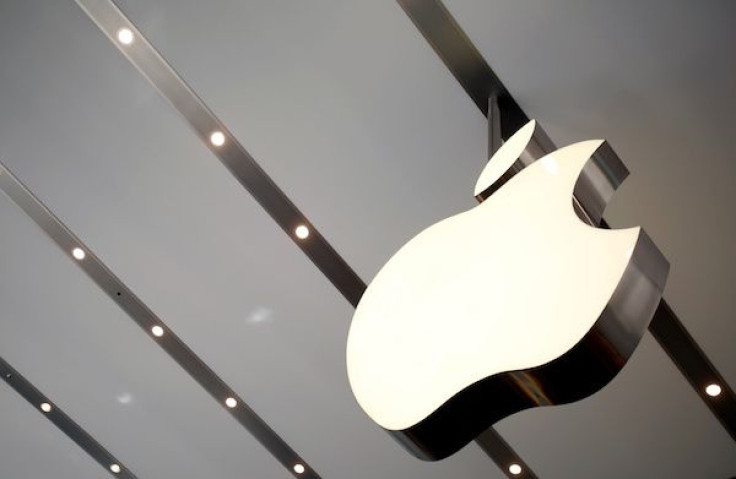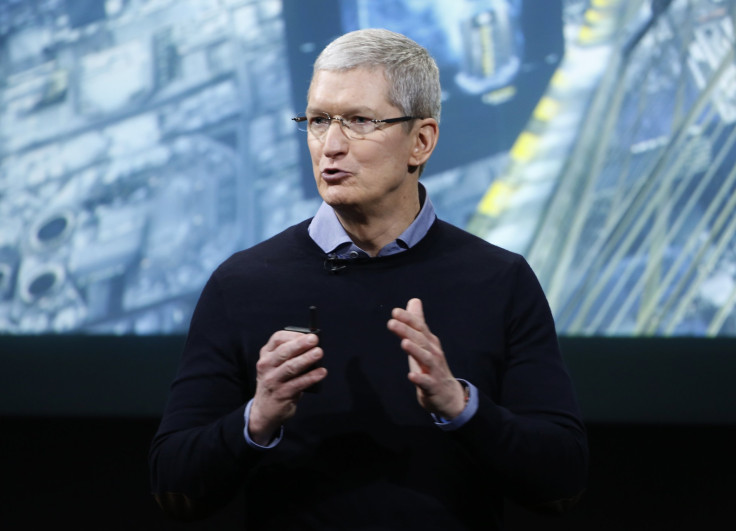What Is Project Titan? Apple Increased Self-Driving Cars Presence In California

Apple is moving forward with it autonomous technology ambitions. The company has just enlarged its self-driving test fleet in California to 27 cars, according to Bloomberg.
Apple had previously received a permit from the state of California to test three self-driving cars last April. The state’s DMV documents indicated Apple was certifying six drivers to test three modified 2015 Lexus RX450h vehicles. Since the initial three cars, Apple has registered 24 more Lexus RX450h sport-utility vehicles, California’s DMV told Bloomberg. The registrations for the 24 vehicles occurred from July 2017 through this month.
Apple has been secretive about its plans with self-driving technology. However, Apple CEO Tim Cook said in an interview last June with Bloomberg that the iPhone company was not looking into developing its own self-driving cars, but was instead focusing on an autonomous system for vehicles. He added that it's “a core technology that we view as very important."
"We sort of see it as the mother of all AI [artificial intelligence] projects," Cook added. "It's probably one of the most difficult AI projects actually to work on."
Although he said Apple was focusing on an autonomous system, Cook didn’t dismiss the idea of the company creating its own self-driving cars, saying “we’ll see where it takes us.”

Apple is said to have started working on its autonomous technology, dubbed Project Titan, in 2014. The project has reportedly had its ups and downs throughout the years, including disagreements on whether the company should build a fully autonomous car or a semi-autonomous vehicle. Apple reportedly put the project back on track last year when it put longtime executive Bob Mansfield in charge.
In April 2017, the same time Apple received permits from the DMV, the company reportedly hired three former NASA engineers for its self-driving plans. The ex-NASA employees had previously worked in detection of 3D objects and motion planning algorithms. Also last spring, images of Apple’s self-driving car were revealed. A few months later, a video was uploaded on Twitter by Voyage co-founder MacCalister Higgins. The clip showed what seemed to be Apple’s test Lexus, a white SUV equipped with 6 LiDARS on the top.
Going to need more than 140 characters to go over 🍎's Project Titan. I call it "The Thing" pic.twitter.com/sLDJd7iYSa
— MacCallister Higgins (@macjshiggins) October 17, 2017
While Apple seems to be moving ahead with its self-driving project, the company is still behind other competitors working on autonomous technology. Uber and Alphabet’s self-driving unit Waymo have been testing their vehicles in multiple states. Waymo announced this week it will starting testing its autonomous cars in Atlanta. The addition of Atlanta brings Waymo’s total number of test cities to 25, much more than Apple.
“Metro Atlanta is the next stop for Waymo's test program,” Waymo said in a tweet. “Now that we have the world's first fully self-driving vehicles on public roads in AZ, we're looking to take our tech to more cities.”
With Atlanta, Waymo has now officially tested in 25 cities across the U.S. That includes complex places such as the foggy hills of SF, the snowy streets of Michigan and the rainy roads of Kirkland, WA. pic.twitter.com/t7zaZ9lUCo
— Waymo (@Waymo) January 22, 2018
Hello ATL! Metro Atlanta is the next stop for Waymo's test program. Now that we have the world's first fully self-driving vehicles on public roads in AZ, we're looking to take our tech to more cities. pic.twitter.com/YFLvxkVMMd
— Waymo (@Waymo) January 22, 2018
Meanwhile, Uber announced last November it struck a deal with Volvo for 24,000 Volvo XC90s for its self-driving fleet. Volvo is set to deliver the cars between 2019 and 2021.
© Copyright IBTimes 2024. All rights reserved.











